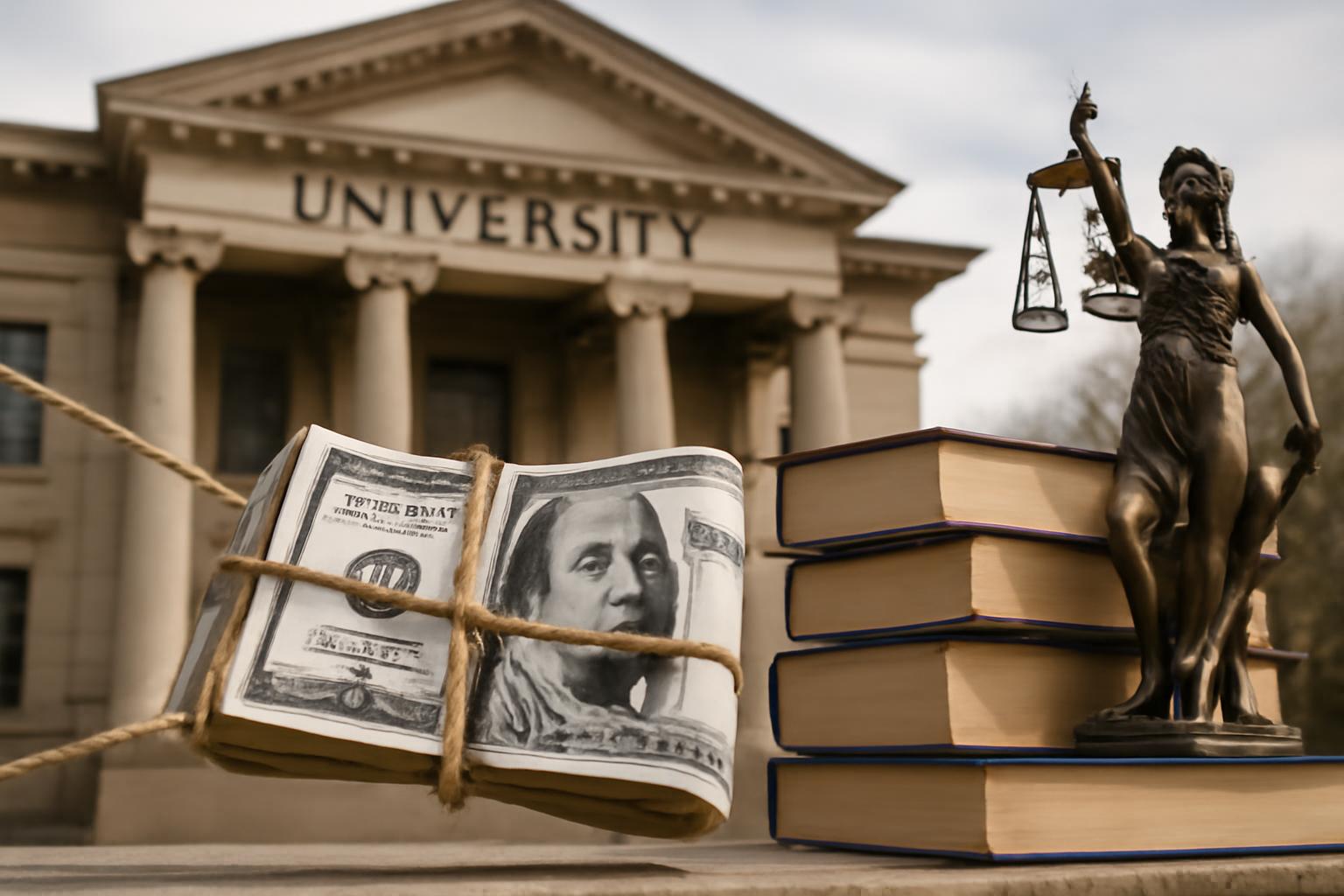Conditions surrounding state subsidies and research funding for the great universities have shifted in ways that reveal the delicate balance between safeguarding civil liberties and steering the minds that will shape our future. In essence, the federal purse has used concerns over antisemitism and campus climate as a lever to compel changes in governance, curricula, and the management of diversity programs. Several leading schools have agreed to accept government-defined criteria, penalties, and structural overhauls as a price for reopening the taps of funding, while others resist by pursuing legal remedies or standing on principle. The practical upshot is not only a transfer of money but a transfer of sovereignty—over what may be studied, how it is taught, and who must think in what way to receive support.
What is happening, in plain terms, is a political currency being spent on ensuring that a particular set of views about power, identity, and history gains prominence in the public academy. There is the claim that the freeze on funds was justified by an antisemitic environment; there is the counterclaim that the remedies—penalties, compensation funds, and a government-backed definition of antisemitism—constitute a form of central planning of intellectual life. And with that, the most venerable of institutions—those that have long prided themselves on independent inquiry and the contest of ideas—find themselves negotiating the terms of their survival with political authorities who hold purse strings and set regulatory conditions. The result is a troubling melding of state power with the university’s autonomy, a fusion that thinly veils the explicit lesson: money is not neutral, it is a tool that shapes priorities and boundaries.
From a perspective that remembers the dangers of central direction, this turn is profoundly disquieting. The university exists, ideally, as a place where knowledge can flourish under the discipline of reason, criticism, and the check of rival interpretations. When funding is made contingent upon accepting a particular definition of prejudice, or upon ending programs that enable diverse voices and methods, we risk transforming higher education into a laboratory for political orthodoxy rather than a marketplace of ideas. The price of regaining support—the acceptance of a policy framework and curricular restructurings—may be the suppression of legitimate debate about complex and morally charged issues. If the state can dictate not only what is taught but what counts as disqualifying speech, then the very idea of academic freedom becomes ornamental rather than real.
And yet the impulse to shield students from genuine harm—particularly antisemitic harassment and bigotry—is not one to be dismissed. The instinct to protect the vulnerable is a rightful concern of any society that hopes to temper the excesses of prejudice with law and decency. The danger lies in conjoining that protective impulse with the prerogatives of the state to define truth, to calibrate curricula, and to reward or punish professors and institutions according to compliance with ever-shifting administrative edicts. When that happens, research is not freed to explore the unknown; it is tethered to a timetable and a doctrinal compass determined by those who control the purse.
The broader lesson is a reminder of the fragility of spontaneous order in scholarship. The university, in its finest form, is a decentralized network of self-governing communities, each pursuing inquiry through trial, error, disagreement, and a continual recalibration of aims. This order thrives on pluralism, competition, and the protection of dissent, not on centralized mandates that blur lines between funding, governance, and epistemic authority. If the state becomes the primary referee of every boundary—what constitutes antisemitism, what counts as legitimate critique, what curricula may or may not survive—then the capacity of the academic world to discover novel questions and to challenge prevailing orthodoxy diminishes.
What, then, is the reform that preserves both civil peace and intellectual freedom? First, sharply delimiting the role of government in the everyday life of the university is essential. Grants and subsidies should be guided by transparent, neutral criteria aimed at supporting excellence, integrity, and broad access to research opportunities—not by mandating definitions of prejudice or prescribing curricular reforms as a condition of funding. Second, the protection of individuals from harassment and discrimination should be enforced through independent, due-process mechanisms that do not require surrender of institutional autonomy or the surrender of scholarly judgment to political authorities. Third, the private and public spheres alike should nurture a robust ecosystem of donors, philanthropists, and independent funding bodies that do not become instruments of policy capture, thereby allowing universities to compete for support on the strength of ideas and outcomes rather than compliance with regulatory prerequisites. Fourth, any effort to address antisemitism or other harms must be comprehensive, proportionate, and designed to uphold the standards of fair inquiry, including the right to critique, to debate, and to learn from disagreement without fear of losing funding or status.
In the end, the true test is not whether any particular policy can suppress certain forms of prejudice or appease anxious constituencies, but whether the environment can sustain the quiet, unglamorous work of discovery that is the heart of knowledge. If we mistake safety from ridicule or violence for safety from challenge, we will have traded the rough road of truth for a curated boulevard that looks safe but leads nowhere. The universities must remain laboratories of freedom, where funding serves as an encouragement to explore, not as a leash that binds inquiry to a fixed agenda. Only then will the pursuit of truth, and the protection of those who seek it, endure in a liberal order that respects both liberty and law.
